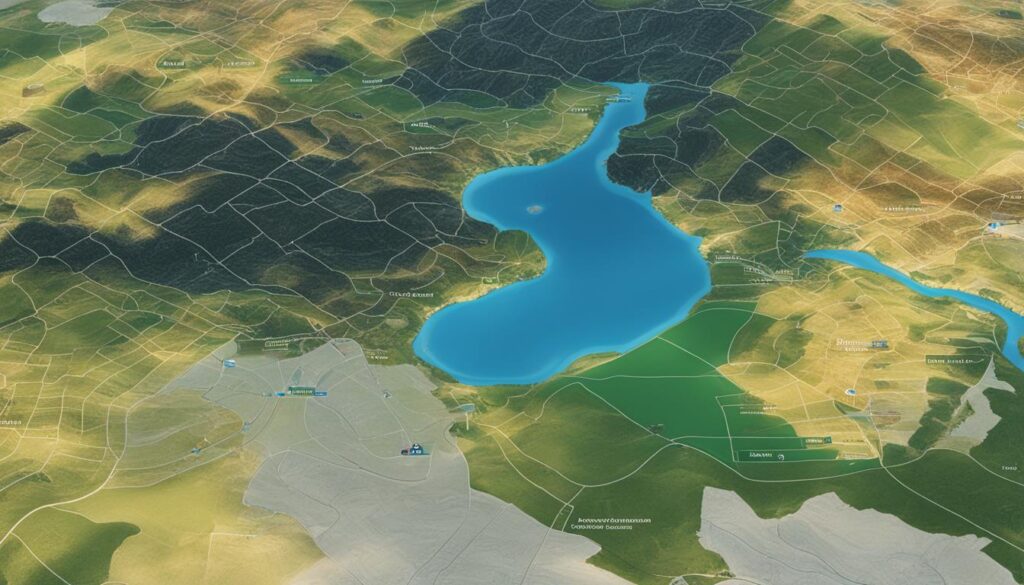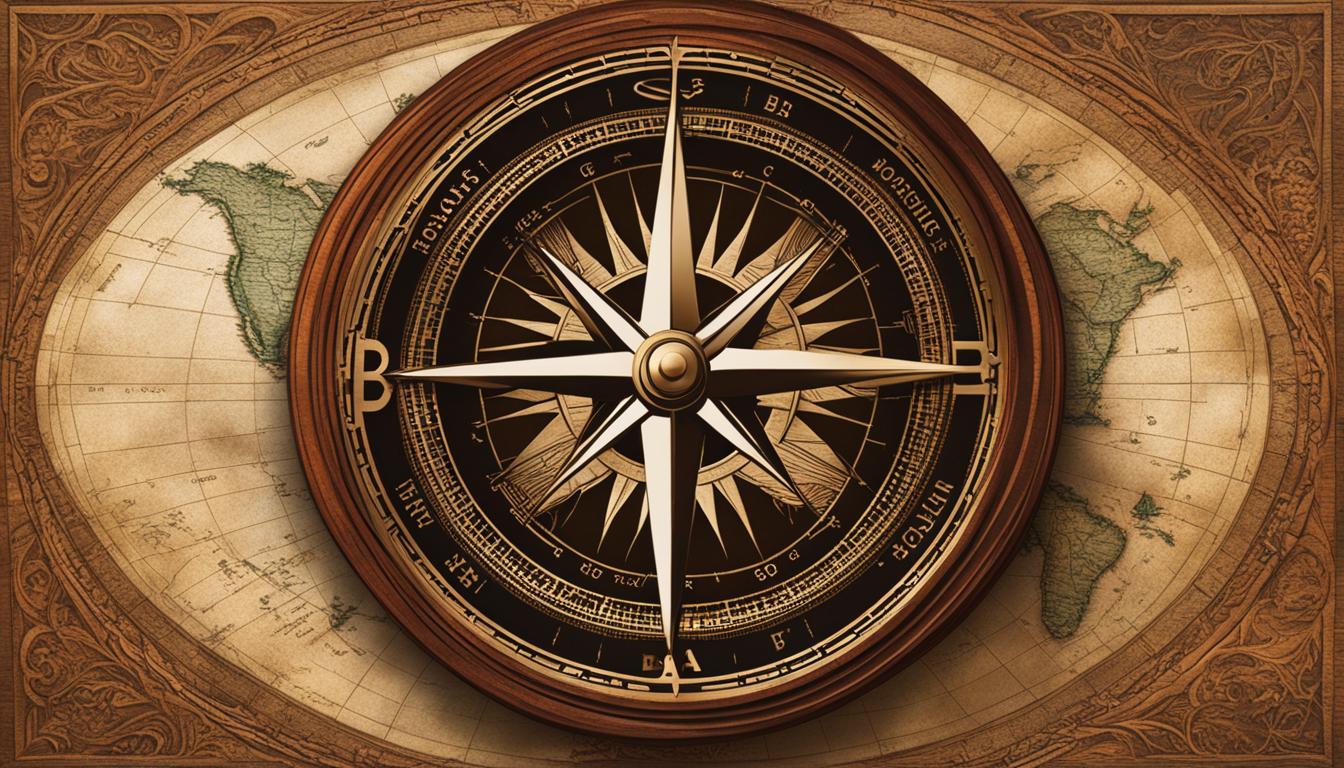Your quest for a dynamic and practical education could lead you to explore a Bachelor of Applied Geography, a comprehensive curriculum that combines theoretical knowledge with essential field skills. Focused on an all-encompassing survey of environments, societies, and burgeoning GIS technologies, a B.A. Geog. prepares you for tackling the complexities of an ever-shifting world. Whether you’re intrigued by analyzing climatic patterns or you’re drawn to the prospect of urban development, this geography degree is designed to arm you with a versatile skill set.
Setting its sight beyond mere textbook knowledge, an applied geography program emphasizes engagement with real-world challenges. Striking a balance between academia and application, these programs usually span three to four years and wander through the troves of physical and human geography before branching out into specialized domains such as environmental management and urban planning. For those aspiring to become geospatial savants or planners of future cities, starting your journey could be as simple as utilizing tools like the uniRank World Universities Search Engine to discover educational institutions that can catalyst your ambitions.
Key Takeaways
- A Bachelor of Applied Geography equips you with a perfect blend of theory and practice.
- The degree delves into diverse subjects like urban planning and environmental management.
- Utilize resources like the uniRank World Universities Search Engine to find the right program.
- In-demand GIS technologies are a cornerstone of the curriculum.
- Prepare for a meaningful career with geospatial and environmental expertise.
- Consider the program’s duration and cost when selecting an institution.
Understanding Bachelor of Applied Geography (B.A. Geog.)
The field of Applied Geography serves as a bridge between theoretical knowledge and practical problem-solving, offering students the key to unlock diverse career options in geography, environmental studies, and geospatial sciences. By engaging with this academic discipline, you will delve deep into the intricacies of spatial relationships and their implications on the environment and society.
What is Applied Geography?
At its core, Applied Geography is the application of geographic insights to comprehend and resolve issues concerning natural resources, social frameworks, and environmental pressures. This multidimensional study enables you to interpret the world’s complexities through a geographic lens, integrating data analysis with tangible outcomes that bear significance in the real world. Whether you aspire to shape urban landscapes or guide environmental conservation efforts, this field equips you with the analytical and technical expertise required.
Duration and Structure of the Program
The B.A. Geog. program typically spans three to four years, depending on the institution and its academic agenda. Your journey begins with foundational geography courses, which set the stage for more specialized learning pathways. In the table below, we outline the progression through various levels of this structured academic regimen:
| Year | Focus Area | Example Courses | Hands-on Learning |
|---|---|---|---|
| 1st Year | Introduction to Geography | Principles of Geography, Physical Geography | Field Studies |
| 2nd Year | Core Specializations | Geographical Information Systems (GIS), Urban Geography | Research Projects |
| 3rd Year | Advanced Topics | Environmental Management, Spatial Data Analysis | Internships |
| 4th Year | Capstone Experience | Applied Geography Projects | Professional Placement |
By participating in practical experiences like internships and applied projects, your academic endeavors converge with real-world applications, preparing you to pursue a successful career in dynamic roles—from urban planning and GIS specialist posts to environmental consultancy. Such comprehensive training ensures that upon graduation, you are ready to contribute solutions to geographical challenges worldwide.
The Curriculum Details
Delving into the heart of the Bachelor of Applied Geography, you will uncover a curriculum that’s more than just a series of lectures. Foundational knowledge is expanded through thematic tracks that invite an in-depth exploration into specialized areas of geography. For instance, the Cities, Citizenship and Migration track critically examines urbanization processes, while the Environment, Economy, and Sustainability track explores our role and impact on the natural world.
Moreover, the ever-expanding realm of GIS technology is a jewel in the crown of this degree, educating scholars in the art of creating, managing, and deciphering spatial data. It’s not just about maps; it’s about the stories they tell and the decisions they inform, particularly in the arenas of urban planning and environmental management.
- GIS, Mapping, and Society tackles how geospatial technology shapes our understanding of social landscapes.
- Globalization, Health, and Development capsulizes how geography affects global health trends and economic development.
Your academic journey is amplified by hands-on methodology courses. Whether you’re conducting field research or engaging with real-world spatial data scenarios, these experiences cement your knowledge and skills, preparing you for a spectrum of career options in geography.
Advanced courses allow you to delve deeper into specific interests. Whether dissecting the economics behind international trade or grasping the complexities of weather patterns, these classes are integral to developing a nuanced understanding of the intricacies and interconnectedness of geographic phenomena.
Electives, both within and complementary to the Geography Department, offer the flexibility to tailor your education. By incorporating classes from related disciplines, you can mold a truly interdisciplinary and robust academic profile that responds to the dynamism of the geographic field.
Sculpt your future with a degree that spans traditional boundaries and equips you with a skill set integral to tackling today’s global challenges. The Bachelor of Applied Geography isn’t just a pathway to a job; it’s an invitation to play a critical role in shaping the way we comprehend and interact with our world.
Key Skills and Technologies in B.A. Geog.
As you delve deeper into the Bachelor of Applied Geography, you’ll find that certain skills and technologies stand out as critical components of your education. Focusing on these elements ensures that graduates are well-prepared for the complexities of the modern world, where geographic data plays a crucial role in decision-making across sectors.
GIS and Spatial Analytics
GIS technology has revolutionized the field of geography, making spatial analysis a key skill for any applied geography professional. Throughout your studies, you’ll engage with sophisticated software and methodologies designed to capture, manage, analyze, and display geospatial data, empowering you to uncover patterns and insights with precision.

Remote Sensing and Fieldwork Practicums
Remote sensing technologies complement GIS by enabling you to observe and analyze the Earth’s surface from afar. This field is essential for environmental monitoring, disaster response, and urban planning. Hands-on fieldwork practicums will provide practical experiences, allowing you to apply remote sensing and spatial analysis skills in real-world settings.
| Skills and Concepts | Application in Industries |
|---|---|
| Geospatial Data Collection | Environmental Management, Urban Planning |
| Spatial Analysis Techniques | Transportation, Disaster Management |
| Remote Sensing Technologies | Agriculture, Defense Intelligence |
| GIS Mapping and Software Proficiency | Resource Management, Policy Development |
By mastering these indispensable skills and technologies within your B.A. Geog., you’ll find yourself at the forefront of a rapidly evolving discipline, ready to tackle the spatial challenges of today and tomorrow with expertise and confidence.
Career Options with a Geography Degree
Embarking on a journey through a Bachelor of Applied Geography paves the way to a robust selection of career options in geography. Your degree is more than a piece of paper; it’s a gateway to diverse fields where your expertise in spatial relationships and environmental patterns is highly valued. Imagine yourself shaping cities of the future as an urban planner, or flexing your tech-savvy muscles as a GIS specialist, analyzing and interpreting geographic data to drive insightful decisions across various industries.
As a graduate, you are in a prime position to address some of today’s most pressing issues as an environmental consultant, offering strategic solutions to organizations for sustainable development. With roles like cartographer, you can draw the lines that connect society, crafting maps that convey crucial information to the public and private sectors alike. If you’re drawn to the intersection of geography and policy, a role as an advisor to tackle the geographical implications of urbanization and globalization awaits.
Your prowess in applied geography can lead to financial stability, with salaries for geographers typically ranging from $40,000 to $70,000 annually, a figure that can climb as you gain more experience and specialize in sought-after skills. To tailor your educational experience toward your professional aspirations, you should actively seek counsel on electives and career trajectories. Your department’s advising office is equipped to steer you, and resources like jobRank can offer insights into the evolving job market, ensuring that your career path is as dynamic and forward-thinking as the degree you’ve earned.
FAQ
What can I expect to learn in a Bachelor of Applied Geography program?
A Bachelor of Applied Geography degree offers a comprehensive blend of theoretical and practical geographical knowledge, covering human and physical geography, environmental management, urban planning, and advanced GIS technologies.
How long does it typically take to complete a B.A. Geog. degree?
The duration of a Bachelor of Applied Geography program typically spans 3-4 years, though this can vary based on the country and the policies of the institution you attend.
What makes Applied Geography distinct from other geography degrees?
Applied Geography focuses on utilizing geographical concepts to address real-world challenges such as natural resource management, urban development, and environmental issues, combining academic study with practical application.
What are some foundational courses I might take in an applied geography program?
Introductory courses include Introduction to Geography and Physical Geography, with advanced courses like Geographical Information Systems, Urban Geography, and specialized tracks in environmental sustainability, urban studies, and geospatial sciences.
How important is GIS technology in a Bachelor of Applied Geography program?
GIS technology is a cornerstone of the B.A. Geog. program, providing tools for spatial data management, analysis, and application in a variety of contexts, including urban planning and environmental assessment.
What type of practical experience will I gain from a B.A. Geog. degree?
You’ll engage in fieldwork practicums, applied geography projects, and potentially internships to gain hands-on experience with remote sensing, GIS, and other geospatial technologies, all of which are critical for real-world problem-solving.
What career paths are available to me with a Bachelor of Applied Geography?
Graduates with a B.A. Geog. have diverse career options such as urban and transportation planning, environmental consulting, GIS specialization, cartography, and policy advisory roles concerned with geographical aspects of urbanization and globalization.
Are there resources available to help me navigate job opportunities after completing my degree?
Yes, many geography departments offer career advising services, and resources like jobRank can be useful for exploring the job market and understanding the variety of roles available to geography graduates.

